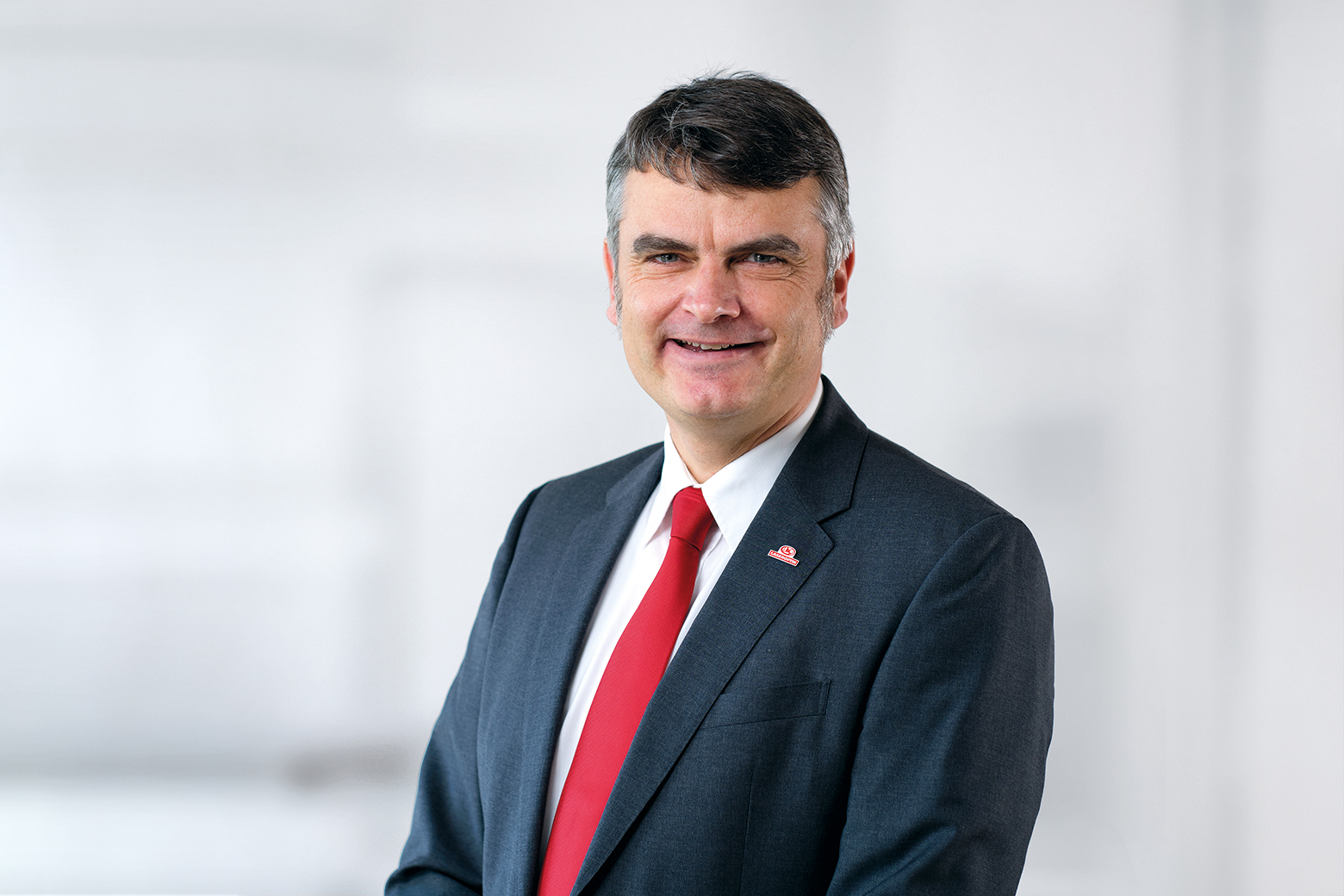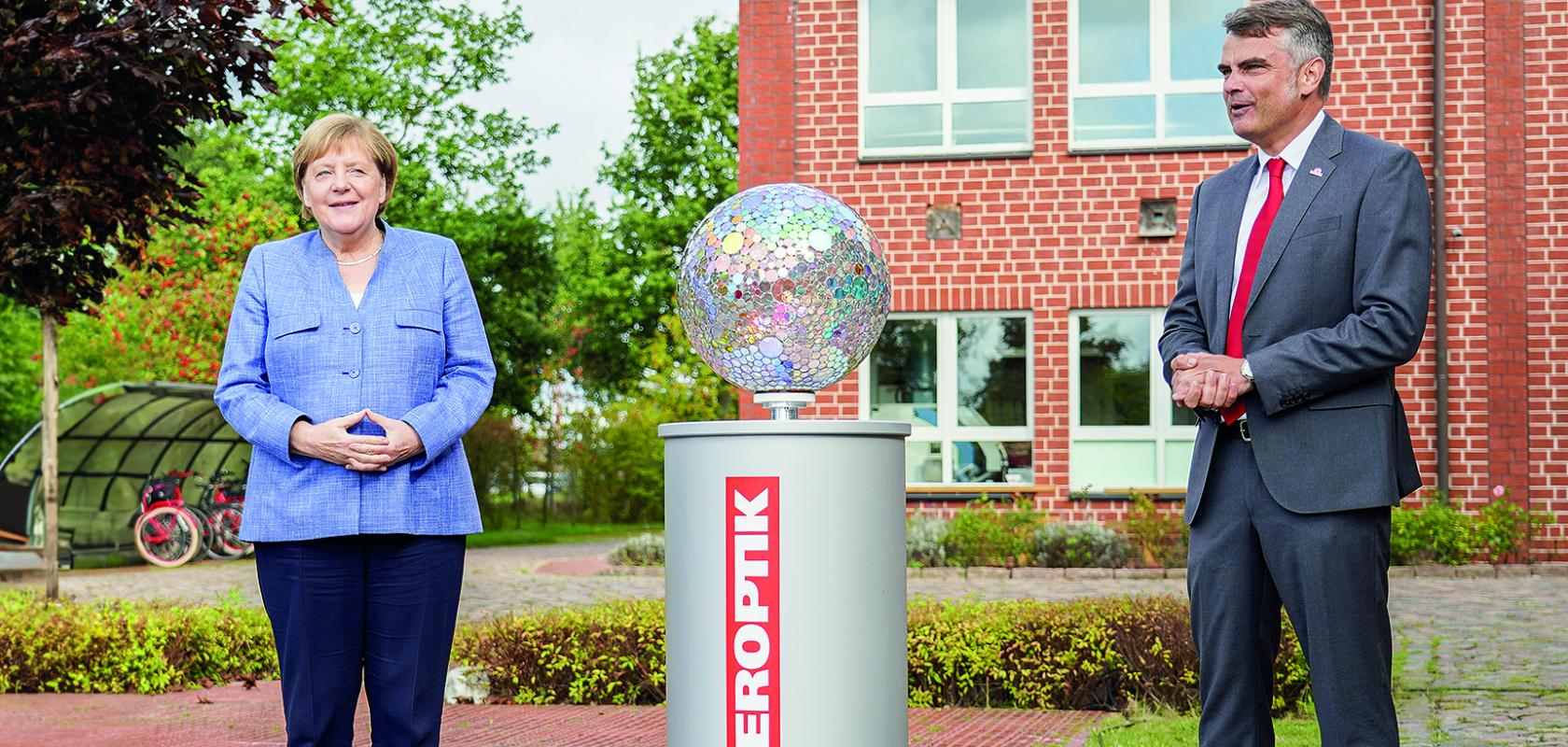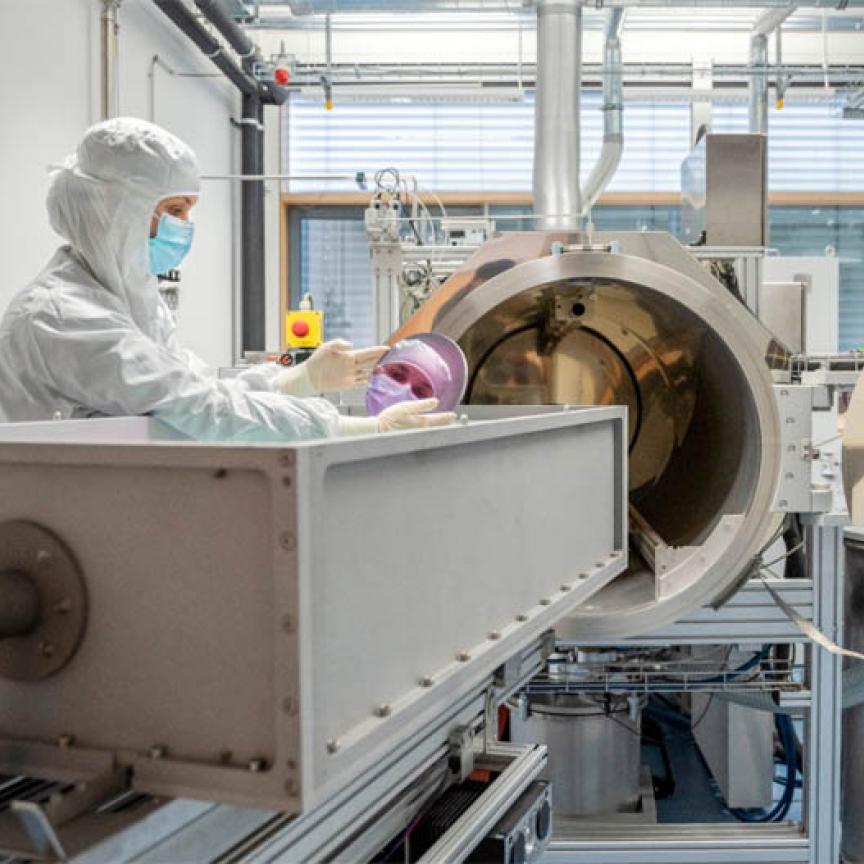Situated just outside Hanover in Germany, Laseroptik celebrates its 40th anniversary in 2024. We talk to President Wolfgang Ebert about the business he has run since 2008 and what to expect in the coming decades.
Your father famously founded the company from the basement of your family home and the business is still very much a family business. Did you always believe that your professional destiny was going to be linked to the company?

It's a good question. There were times when I thought I would take an offer I had from the German army to stay there. I also had the opportunity to go into business consulting but, in the end, I came to the conclusion that the family business was the best choice if I wanted to follow my own opinions and convictions.
Can you recall your first recollections of what your father was doing back in that basement, which was the start of Laseroptik?
When the company moved into our family home, everything changed. I got very close to all of the technology involved. Many things changed [in that time], but I was never discouraged. The company took over almost every room [in the house], apart from the bathroom!
Your father's research in the 1970s gave him the inspiration for the business that we now understand as Laseroptik today. What was that journey like for him? What do you think motivated him?
The scientists at the University of Hannover [where Wolfgang’s father, Dr Johannes Ebert, worked] understood that you need a certain selection of components to build a laser, but the challenge is to get the right coatings on that glass substrate. And, of course, to really use light as a tool. They knew if they wanted to make quick advances, they must make their own coatings and laser optics. And that became my father’s task. He modified a lot of things, and helped many scientists throughout Europe and the whole world to enable laser technology. That pioneering spirit is in our genes.
The business is 40 years old this year – a lot has happened in that journey from 1984 to today. What have been the key chapters or highlights on that journey?
I've been looking at our history, decade by decade. The first 10 years was spent getting out of the basement. Then, next to the family home, we created the next level of professional production with our first dedicated company building with clean rooms, and modern coating technology, and also more metrology to understand the performance of our coatings and optics. Today, we have the two new buildings where we enlarged our portfolio of coating methods from two to six. That has helped many researchers and laser manufacturers across the whole world to build the latest lasers.
Plenty has changed in the world around you – and 40 years is a long time – are some critical philosophies that were true when the company was formed still true of Laseroptik today?
We maintain those original beliefs and philosophies. One of them is that a company should be more than just something to create profit. And I think it's not just a belief – it also makes sense, business wise, when your people stick with the company and when they are happy to go to work every day. For me, as the President, it makes more sense to run a company like that.
There are some fantastic examples of that at Laseroptik, including the firm’s kindergarten and the famous stork nest. So, I think you're a living embodiment of that principle… One of the things that's less obvious when you're walking around is the way you heat the building and your focus on renewable energy. Can you tell me about that?
We power the whole company with 100% green energy, but we'll also reuse a lot of the energy. So, for example, the waste heat from the coating processes is taken in order to heat the buildings in the wintertime.
And in terms of the portfolio of products that you have here. Was there a critical pivot point where the company had to grow in a different direction?
That's a good question… One was when we decided to start engineering and build parts of our machines ourselves. That was when customers were approaching us with demands that you cannot cover with standard, off-the-shelf machines – for example, our large optics. No one offered machines in that size, or with that technology, which we wanted to push forward. So we made them ourselves. It's unique, and helped to emphasise the reputation that we have in the world for the really special optics that we create.
Of course, back in 2007, you were uniquely adopting and using IBS coating techniques in Europe. Although they were available in the US, that must have made a big difference to your reputation.
You're right. And it was a very good decision. Before us, there were institutes in Europe offering it and, of course, some skilled US suppliers. But we decided this technology had the right production maturity and was ready to go for production. We started with one machine, and, today, it's 18, running 24/7. Some of them have been modified and we built some ourselves for special optics. So that was a very good decision that has helped us to get where we are today.
Any regrets or bad decisions?
There have been some machine experiments that I will not talk about too long! But, as in physics, not all the experiments are successful. And I wish I had started with IBS earlier, that's for sure.
You have a huge range of coating machines today and an awful lot of output. Has that been a gentle journey or have you had to increase capacity in big bursts?
Our company is now 40 years old and, in total, it's 40 machines today. So the average is one per year, but there have been very busy years when certain parts of the market were pushing a lot. So, it became two or three machines that were installed in those years.
[Each machine] is a big investment, right?
Yes, and it's not just money. It's also work time. We modify them to get them to the quality level and sophistication that we need.
Which of the markets are you most strongly focused on today?
Our biggest customers are in laser applications for industrial processes. That means cutting, marking, welding, and the hype in electro mobility has pushed that market a lot in the past couple of years. A lot of laser optics [are required] for the systems that create the batteries.
Could you explain some of the principles that drive your approach to customer management?
We see our customers as partners, and we have no sales people travelling around. Our best marketing is our reputation. Those who have complex requirements for laser mirrors know who to approach…
What differentiates you from other suppliers?
In total, we apply six coating methods, which includes five physical ones, and even one chemical one. And having that portfolio helps us to cover almost everything that comes from laser development.
A history of collaboration underpins much of the company's story to date. Is that still important today?
Yes, it is. Definitely. The way we work with our customers is very close – not just technology-wise, but also person-wise. We like to look behind the scenes of who we are working with.
Customisation must be absolutely critical to almost all of the product development that you do here?
That's correct, because there are standard laser optics and coatings you can get from any catalogue. We can’t focus on that in Germany anymore; we have to concentrate on things that are challenging.
We’re all operating in difficult times, I'm wondering if there are particular business development challenges you face today.
It can be difficult to get critical products. For example, highly sophisticated substrates, such as super-polished substrates, require you to find the right partners and really bond with them in order to be on the safe side; that's what we try to do.
Are there any particular technology challenges that you're wrestling with at the moment?
I also regard it as very challenging to stand in the forefront of technology. It's sometimes hard to be on top of our capabilities in order to be ready for the next adventure.
You launched Laseroptik Express in 2006 and that was all about rapid prototyping. Is demand for it as strong today as it was then?
It depends. There are times – before trade shows, for example – when there is a high demand for Express. Other times, it's moderate. And then we have regular customers who know the back door and know how to get a quicker slot!
Have you had to adjust the offerings of your Express service in the time since its launch?
No, it has always been the way it is. When an order for Express 24-hours comes in, then it's my job to guide it through the whole company.
The skills shortage is an issue we hear a lot about across the entire industry. Are you facing a similar challenge in getting the right skilled technicians and engineers into your business?
Yes, there is quite some competition for talent. But I think we have a special offering to candidates. We have our kindergarten; we have no shift work here; we share the profit with our employees. And, somehow, it still feels like a big family. I think it is an interesting offering for candidates.
Could you share any insight into what critical products or technologies you're focusing on for, say, the next 24 months?
There is a kind of secret that I can tell you about – there will [soon] be a special programme for large optics for high-power laser systems, and especially laser fusion. The optics must withstand even higher laser power and have a better lifetime and performance.
OK, I look forward to covering that in due course when you can tell me about it without killing me! Are there any particular corporate goals you have for Laseroptik in the years ahead?
Yeah, we would like to stay at the forefront of technology, and to continue as pioneers in the market of thin-film coatings.
Are there any major revenue drivers that drive the success of the business on the horizon?
Not really, at the moment. Plenty of photonic systems go into quantum research, and we are part of that. I imagine that the market for high-power laser systems and their accessories will grow in the future. As we know, there have been breakthroughs in the field of laser fusion and there is a high demand for sophisticated laser optics. And that's good for the business. And it's good for the industry at large. And it's good for society, because a lot of those applications will really move things forward in a positive direction.
Finally, looking back, there were significant moments where you had to upscale the amount of clean-room space that you had with new buildings – you've moved from one building to two buildings to three buildings now – are there going to be any more?
There is some space left on our ground for another building… and I often get asked by my employees if we want to build it. Now, it's not a question of ‘if’; the question is ‘when’ and what will be inside…
Ok, so it's very much a case of ‘watch this space’ but it's coming…


